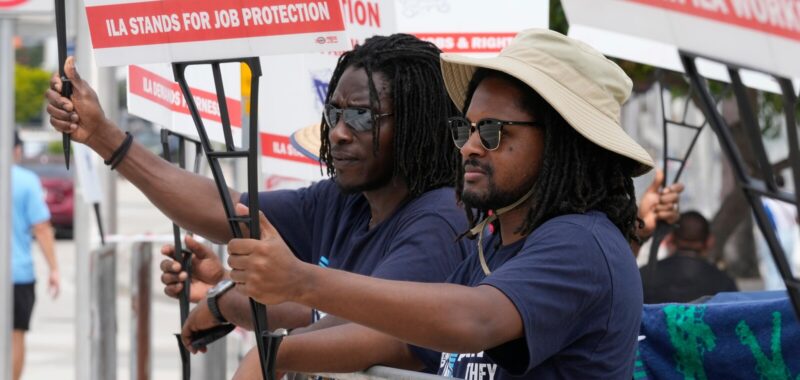DETROIT — The union representing 45,000 striking U.S. dockworkers at East and Gulf coast ports has reached a deal to suspend a three-day strike until Jan. 15 to provide time to negotiate a new contract.
The union, the International Longshoremen’s Association, is to resume working immediately. The union and the U.S. Maritime Alliance, which represents ports and shipping companies, also reached a tentative agreement on wage increases, but no details were given, according to a joint statement from the ports and the union Thursday night.
A person briefed on the agreement said the ports raised their wage offer from about 50% over six years to 62%. The person didn’t want to be identified because the agreement is tentative. Any wage increase would have to be approved by union members as part of the ratification of a final contract.
The union went on strike early Tuesday after its contract expired in a dispute over pay and the automation of tasks at 36 ports stretching from Maine to Texas. The strike came at the peak of the holiday shopping season at the ports, which handle about half the cargo from ships coming into and out of the United States.
The walkout raised the risk of shortages of goods on store shelves if it lasted more than a few weeks. Most retailers, though, had stocked up or shipped items early in anticipation of the dockworkers’ strike.
“With the grace of God, and the goodwill of neighbors, it’s gonna hold,” President Joe Biden told reporters Thursday night of the agreement.
The union’s membership won’t need to vote on the temporary suspension of the strike. Until Jan. 15, the workers will be covered under the old contract, which expired on Sept. 30.
The union has been demanding a complete ban on the use of automation at the ports, which they see as a threat to their jobs. Both sides also have been apart on the issues of pension contributions and the distribution of royalties paid on containers that are moved by workers.
Just before the strike had begun, the Maritime Alliance said both sides had moved off their original wage offers, a tentative sign of progress.

